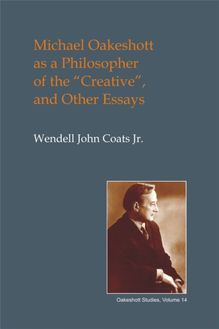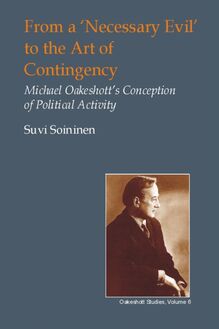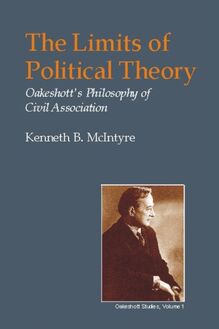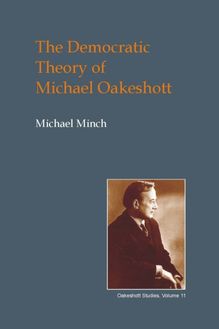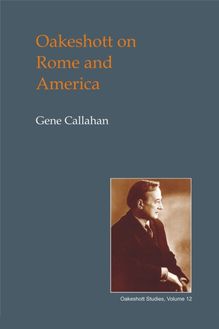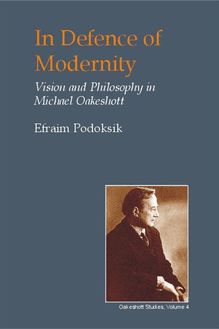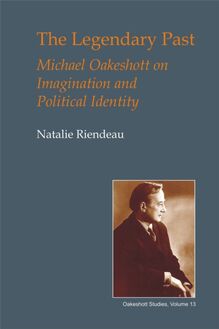-
 Univers
Univers
-
 Ebooks
Ebooks
-
 Livres audio
Livres audio
-
 Presse
Presse
-
 Podcasts
Podcasts
-
 BD
BD
-
 Documents
Documents
-
- Cours
- Révisions
- Ressources pédagogiques
- Sciences de l’éducation
- Manuels scolaires
- Langues
- Travaux de classe
- Annales de BEP
- Etudes supérieures
- Maternelle et primaire
- Fiches de lecture
- Orientation scolaire
- Méthodologie
- Corrigés de devoir
- Annales d’examens et concours
- Annales du bac
- Annales du brevet
- Rapports de stage
La lecture à portée de main
Vous pourrez modifier la taille du texte de cet ouvrage
Découvre YouScribe en t'inscrivant gratuitement
Je m'inscrisMichael Oakeshott as a Philosopher of the Creative , livre ebook
Découvre YouScribe en t'inscrivant gratuitement
Je m'inscrisEn savoir plus
Vous pourrez modifier la taille du texte de cet ouvrage
En savoir plus

Description
Sujets
Informations
| Publié par | Andrews UK |
| Date de parution | 22 juin 2021 |
| Nombre de lectures | 0 |
| EAN13 | 9781788360104 |
| Langue | English |
Informations légales : prix de location à la page 0,1124€. Cette information est donnée uniquement à titre indicatif conformément à la législation en vigueur.
Extrait
Michael Oakeshott as a Philosopher of the “Creative”
...and Other Essays
Wendell John Coats Jr.
www.imprint-academic.com
Published in 2019 by
Imprint Academic
PO Box 200, Exeter
EX5 5YX, UK
www.imprint-academic.com
Digital edition converted and distributed by
Andrews UK Limited
www.andrewsuk.com
Copyright © 2019 Wendell John Coats Jr.
The moral rights of the author have been asserted in accordance with the Copyright, Designs and Patents Act 1988.
All rights reserved. No part of this publication may be reproduced, stored in a retrieval system, or transmitted, in any form or by any means without the prior written permission of the publisher, nor be otherwise circulated in any form of binding or cover other than that in which it is published and without a similar condition being imposed on the subsequent purchaser. Any person who does so may be liable to criminal prosecution and civil claims for damages.
The views and opinions expressed herein belong to the author and do not necessarily reflect those of Imprint Academic or Andrews UK Limited.
To the memory of Michael J. Oakeshott (1901–1989), exquisite cultivator of the complex Western urge to stand both within and without the stream of time, to appreciate the unique historical event, and yet to rise above it...
And to the memory as well of Michael B. Foster (1903–1959), profound expositor of the distinction between a crafted object and a created object (to include a human being), and the various philosophic and cultural ramifications thereof...
Preface
Thanks to the Michael Oakeshott Association at the conferences of which many of these papers were first presented; to Imprint Academic for permission to reprint the first and seventh essays; [1] to Lexington Books for permission to reprint the third essay; [2] to Associated University Presses for permission to reprint the fourth essay; [3] to the Association for Core Texts and Curricula for permission to reprint as an appendix my little talk on medieval ‘Eternity-Creation’ debates; [4] to Bodleian Library, Oxford University, for providing a copy of the Liddington thesis; and to Connecticut College for a semester sabbatical leave in 2018 to write the fifth and sixth essays. Thanks also to Sharon Moody for daring, yet again, to type from my tortured scrawl; and to Tim Fuller, Bob Grant, Pamela Jensen, Sylvia Lechner, and Noel O’Sullivan for comments on various essays. Obviously I alone am responsible for not taking more of their advice than I did.
1 “Michael Oakeshott as Philosopher of ‘the Creative’”, in O’Sullivan, N. (ed.) (2017) The Place of Michael Oakeshott in Contemporary Western and Non-Western Thought , pp. 123–141; “Politics, the Political and Armed Force”, in Collingwood and British Idealism Studies , Vol. 22, No. 2, 2016, pp. 257–277.
2 “Some Correspondences between Michael Oakeshott’s Critique of Rationalism and A.C. Graham’s Account of ‘Spontaneity’ vs. Reason’”, in Coats Jr., W.J. & Cheung, C.-Y. (2012) The Poetic Character of Human Activity , pp. 41–55, Lanham, MD: Lexington Books.
3 “Oakeshott’s Descartes, Vico’s Descartes”, in Coats Jr., W.J. (2003) Political Theory and Practice , pp. 43–57, London: Associated University Presses.
4 “Modern Political Effects of Medieval ‘Creation–Eternity Debates”, in Proceedings of 2014 ACTC Conference , online publication, coretexts.org.
Introduction
These eight essays of mine, with one exception, were all written within the past few years. They explore and elucidate aspects of the thought of the twentieth-century English philosophic essayist, Michael Oakeshott, some of which have not been addressed in contemporary secondary literature on his work. As is often observed, Oakeshott’s was an original and enigmatic mind which it is difficult to categorize - conservative, classical liberal, post-modernist, philosophic Idealist, philosophic skeptic, etc. (?) Nor, in the case of Oakeshott, is there much profit to be had in that kind of categorizing exercise. Readers are invited to follow for their own sake Oakeshott’s insightful observations on a variety of subjects, as explored in these collected essays, which advance the view that much of Oakeshott’s work can be seen as a tale spun around the central insight that the structure of experiential reality is creative or poetic.
The title essay, “Michael Oakeshott as a Philosopher of the ‘Creative’”, is my attempt, after several decades of reflection and writing on his work, [1] to provide a comprehensive view of Oakeshott’s perspective on the human things, including, saliently, political life. The essay attempts to place Oakeshott within a narrative of Western intellectual life viewed as embodying a tension between the Greek rationalist philosophy of Plato and Aristotle, and biblical (Jewish and Christian) wilful, creation accounts. Oakeshott is seen as siding increasingly, as he matured, with the “creative” side of the tension. The essay also advances the argument that what Oakeshott called “the poetic character of human activity” is not merely an expression of a preference for an aesthetic view of life, but rather an ontological claim that the structure of experiential reality itself is “creative” or “poetic”, with the form ( how ) and content ( what ) of experience and activity arising simultaneously and conditioning one another reciprocally; and that this claim has profound philosophic, political, moral, and policy effects.
The next four essays hang together thematically. The second essay explores the theme of the “creative” from the standpoint of “modernity” and “post-modernity”. The third essay attempts to show the correspondences between Oakeshott’s critique of prosaic Rationalism and the ancient Chinese Daoist critique (expounded by A.C. Graham) of Confucian and Mohist rationalism. The fourth essay explores Oakeshott’s critique of Modern Rationalism by way of comparison of his abbreviated critique of Cartesian philosophy and that of the eighteenth-century professor of rhetoric, G.B. Vico. The fifth essay contrasts the views of Oakeshott and Leo Strauss on the ancient Romans and Roman law in the history of Western political thought and practice. Predictably, Oakeshott is more appreciative of the Roman emphasis on unreflective and creative tradition versus the Greek orientation on rational “blueprint”. The essay also inspects Oakeshott’s criticism of the misguided attempt to conflate the Greek and Roman experiences, à la Strauss. The sixth essay replies to an acute and critical analysis by John Liddington of Oakeshott’s account of both experience and civil association and the state, by arguing that Oakeshott’s coherence theory of truth comprehends the correspondence theory, and not the other way around as Liddington would have it.
The last two essays are not expressly linked to the theme of the “creative” but are of compelling interest in their own right. The seventh summarizes the views of Oakeshott and the twentieth-century philosopher of science, A.N. Whitehead, on education and observes how the latter’s more utilitarian defence of learning for its own sake supports Oakeshott’s views. The eighth essay compares Oakeshott’s view on the relationship of armed force and war to politics with that of the German thinkers Carl Schmitt and Max Weber, and argues that Oakeshott’s view is closer to Aristotle’s in declining to view politics as simply another form of the will to power.
Although these essays address some scholarly issues (especially in the footnotes), they should be of interest to generally educated readers versed in the perennial themes of higher human reflection. In an attempt to convey quickly the importance of the theme of the “creative” in both philosophy and practical life, included as an appendix is a little talk I gave on modern political effects of medieval “creation-eternity” debates. The sixth essay is the only one addressed exclusively to Oakeshott scholars and scholars of British and German philosophic Idealism.
1 This includes two (one co-authored) previous collections of essays on Oakeshott, and a 1985 journal article on his work which Oakeshott wrote to me and others that he liked.
One
Michael Oakeshott as a Philosopher of the “Creative”
“...the characteristic developments of modern political theory have depended on the displacement of the concept of information by that of creation as the highest practical activity... the same displacement has influenced the modern concept of artistic activity.”
-M.B. Foster, 1935.
This paper advances the argument that the work of the twentieth-century political philosopher, Michael Oakeshott, may be coherently viewed as an increasingly explicit appreciation of what I am calling “the creative” in human thought and action, and what Oakeshott himself alluded to as “the poetic character of human activity”. I have advanced this thesis for many years, but never attempted a comprehensive statement of it showing both its meaning across Oakeshott’s various works, as well as how it fits in the context of Western philosophy from Plato to the twenty-first century. Thus, this paper is an attempt to show not only the presence of a unifying theme across Oakeshott’s various works beginning with Experience and Its Modes (1933), but also how this theme fits in and helps to elucidate and advance the various philosophic and political themes of Western modernity and post-modernity. In brief, and to get ahead of ourselves, I shall be trying to show that the general drift and outline of Western philosophy and political philosophy can be manageably perceived from the late medieval period onward as
-
 Univers
Univers
-
 Ebooks
Ebooks
-
 Livres audio
Livres audio
-
 Presse
Presse
-
 Podcasts
Podcasts
-
 BD
BD
-
 Documents
Documents
-
Jeunesse
-
Littérature
-
Ressources professionnelles
-
Santé et bien-être
-
Savoirs
-
Education
-
Loisirs et hobbies
-
Art, musique et cinéma
-
Actualité et débat de société
-
Jeunesse
-
Littérature
-
Ressources professionnelles
-
Santé et bien-être
-
Savoirs
-
Education
-
Loisirs et hobbies
-
Art, musique et cinéma
-
Actualité et débat de société
-
Actualités
-
Lifestyle
-
Presse jeunesse
-
Presse professionnelle
-
Pratique
-
Presse sportive
-
Presse internationale
-
Culture & Médias
-
Action et Aventures
-
Science-fiction et Fantasy
-
Société
-
Jeunesse
-
Littérature
-
Ressources professionnelles
-
Santé et bien-être
-
Savoirs
-
Education
-
Loisirs et hobbies
-
Art, musique et cinéma
-
Actualité et débat de société
- Cours
- Révisions
- Ressources pédagogiques
- Sciences de l’éducation
- Manuels scolaires
- Langues
- Travaux de classe
- Annales de BEP
- Etudes supérieures
- Maternelle et primaire
- Fiches de lecture
- Orientation scolaire
- Méthodologie
- Corrigés de devoir
- Annales d’examens et concours
- Annales du bac
- Annales du brevet
- Rapports de stage
